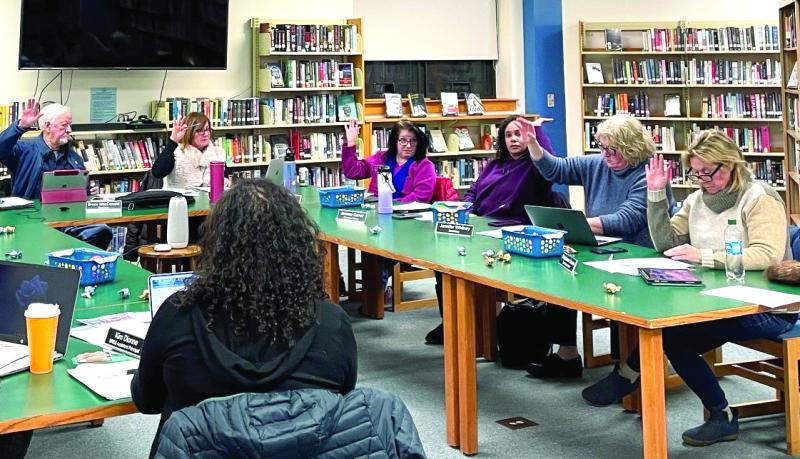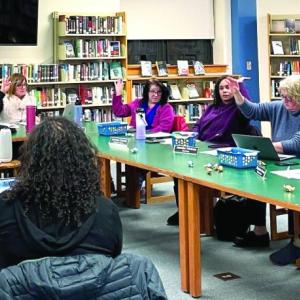CSD ponders passing grades, public comment policy
What makes a passing grade? That's what the Community School District (CSD) School Committee asked Jan. 7. The committeediscussed the high school’s current 60% benchmark, and if the school should aim higher.
“I think the bar should be raised. We should have higher expectations of our kids,” said committee member Stephanie Hawke. “This is when they are learning how to set the bar.”
Hawke brought up the issue and raised concerns that students are doing just enough to get by.She said if the school raises the standards, students will meet them.
However, according to high school principal Tricia Campbell, statistics show having a higher passing grade increases the dropout rate. She also said both Morse High School and Wiscasset High School use 60%, which is historically in line with schools across the state and country.
“I don't think the number, as far as the passing grade, is the concern. I think that the support and setting expectations starts within the classroom,” she said.
Campbell told the Boothbay Register, "Numerical grading systems in the United States date back to the 1940s, and 60% is the traditional passing grade. A passing grade of 60% aligns with common grading standards and ensures a level playing field for competitive scholarships for students applying to post secondary colleges or certification programs."
In 2020, the school raised the passing grade from 60% to 70%, meeting peer norms at the time. Campbell said it was lowered again during the COVID pandemic.
The committee agreed to table the conversation until after budget work has concluded.
In other business, the committee adopted policies around harassment of students and staff, nondiscrimination, expenses and reimbursement and others. They also approved several policies for a first readincluding staff and student use of computers, internet,electronicsand ArtificialIntelligence. Thecommittee tabled two policies for review.
Members discussed the scope of public comment at allowed at meetings, and if questions could be directly answered. Hawke said people whocome to meetings should be able to speak about items not on the agenda and have their questions answered right awayif possible. However, while other members agreed the public should be welcome to speak, some said the situation is more complicated.
“So many times the answers are on the tip of our tongues. We would love to have a conversation, so much could be clarified,” saidcommittee member Abby Jones. However, she said that approach goes against what attorneys have advised at multiple trainings.
Committee member Bruce MacDonald added the committeeoperates by an agenda thatmembers prepare for, and off-topic questions could derail business. Committee member Jenn Whitney said while some questions would be easier to answer in the moment, all questions should betreated with the same approach and answered later to allow more thoughtful responses.
The committee tabled a policy on its responsibilities. MacDonald said the wording states the committeeis responsible formanaging physical aspects of the school, which is part of the Board of Trustees'responsibilities in the CSD. According to the Alternative Organizational Structure 98 superintendent, that language was adopted from state standards for most schools in Maine, which are governed by one body.
In her report, district Director of Finance Kathleen Pearce said the district has received tuition rates from the state. She said, going forward, the district will bill for tuition in March and June after receiving the rates.
























